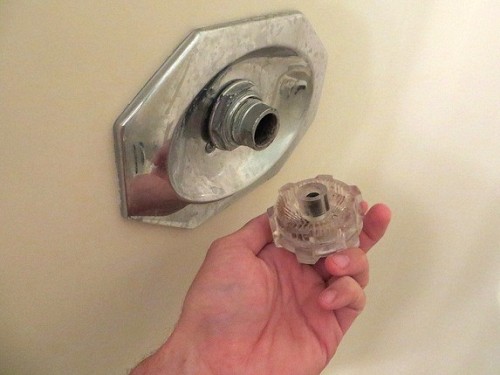Are You a DIY Plumber Wannabe? 10 Basic Do's and Don'ts
- DON'T just dive right in -- figuratively, that is -- when it comes to DIY plumbing installation and repairs. Learn by partnering with someone experienced at first, like one of your local plumbers. When you are ready to venture out on your own, be sure of the whole process before you start -- plumbing does not work well as a "learn as you go" project. Accept that there is a learning curve with very little room for free expression.
- DON'T use drain cleaners as a quick fix. These are composed of harsh chemicals that wreak havoc on the environment -- and on your plumbing pipes. Instead, to clear a clogged drain, start by plunging. If that doesn't solve the problem, use a plumber's snake to clear the pipe.
- DO begin your solo DIY plumbing career with a relatively small, out-of-the-wall fix, such as installing a new showerhead or replacing a kitchen or bathroom faucet.
- DO make sure that you have the necessary equipment on hand before you get started. Essential plumbing tools include an adjustable wrench, basin wrench, closet auger, fire-resistant cloth, hacksaw, metal file, pipe wrench, plumber's snake (hand auger), plunger, propane torch, tongue-and-groove pliers, and a tubing cutter. You should also have these supplies available: silicone sealant, mastic, Teflon tape, a hands-free flashlight, rubber gloves, and a sturdy stepstool.
- DO turn off all the water in your home before attempting any plumbing repair. If you are stubborn self-confident enough to want to shut off only the valve for the fixture you are working on, make sure you know exactly where the water main is, and how long it will take you to make a mad dash to it, if need be.
- DO photograph the plumbing setup which you plan to work on, from several angles, so that you're not faced with a "I don't remember which piece connects to what!?!?" panic when you try to put everything back together again. In fact, this is great newbie advice for any home repair project.
- DON'T neglect your homework. Check on your local building code requirements for a larger DIY plumbing project (they may specify certain tasks that only a professional plumber is allowed to do) and contact a one-call center at least 48 hours before you do any digging. Accidentally hitting utility lines in the course of your excavation is no joke.
- DON'T attempt a plumbing fix on a Sunday or holiday. If things go wrong, you won't be able to pick up the parts and tools you need from your local hardware or home store (best case scenario) and you will pay through the nose for an emergency visit from a qualified plumber (if disaster strikes).
- DO know when to admit defeat. Call in a pro for serious problems such as sewer trouble, leaks inside the wall, and any combination of plumbing and electrical work such as installing a washing machine or dishwasher; an amateur installation may void your warranty and more important, it's dangerous.
- DO keep your home's plumbing system in top shape to minimize repairs. Attend to even the smallest water leak promptly, before it becomes a serious problem. Don't use your toilet as a garbage disposal and don't overload your actual garbage disposal with stringy, pasty, or greasy kitchen waste. (In fact, some of the most problematic foods for your garbage disposal actually tend to make great compost. Think celery trimmings, onion skins, eggshells, and cooked rice, for example.)
Laura Firszt writes for networx.com.
Updated June 25, 2018.
Looking for a Pro? Call us (866) 441-6648

Plumbing Average Costs
Plumbers Experiences

Replacement Water Heater For Our Condo At The Lake

Emergency Plumbing Repair Of Collapsed Sewer Pipe

Four Essential Points That Helped Me Install The Best Toilets
Top Cities Covered by our Plumbers
Austin
| Boston
| Charlotte
| Chicago
| Columbus
| Dallas
| Denver
| Detroit
| El Paso
| Fort Worth
| Houston
| Indianapolis
| Jacksonville
| Los Angeles
| Memphis
| Nashville
| New York
| Philadelphia
| Phoenix
| Portland
| San Antonio
| San Diego
| San Francisco
| San Jose
| Seattle
| Washington



